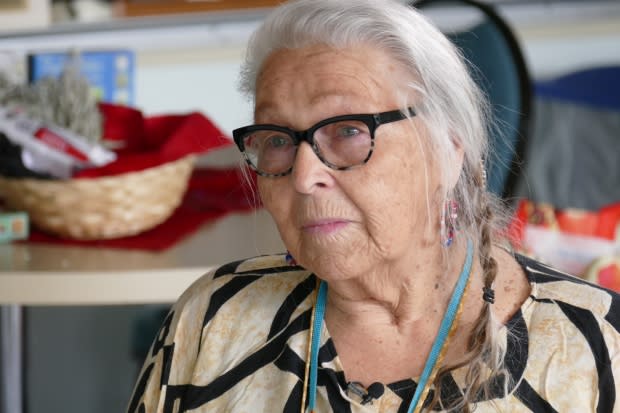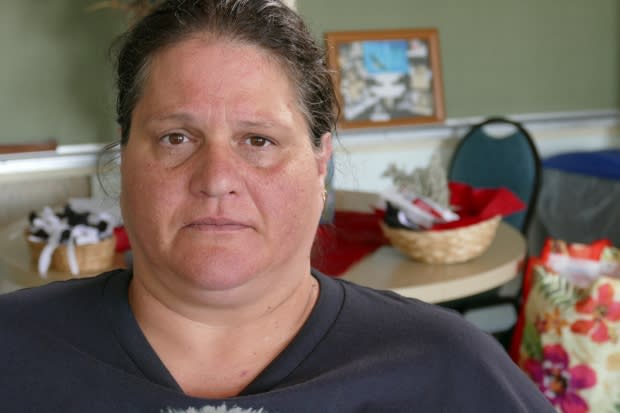'You don't say when you're born, "When I grow up, I'm going to be a prostitute"'
Indigenous women who have lived through sexual exploitation and trafficking have come together this week to share their stories, in hopes that it will help others who might be at risk.
"People don't know what it's like to have that kind of life," said Mae Louise Campbell, an Anishinaabe-Métis elder, who is attending the three-day meeting in West St. Paul, Man.
"[Exploitation] is not by choice, many times it's because they were forced into it you don't say when you're born, 'when I grow up, I'm going to be a prostitute' or 'I'm going to be a drug addict'."
This week's conference was the vision of Campbell, who has been instrumental in bringing in close to 40 women and two spirited folks from across Canada to come and share their stories and wisdom.
"There's something we don't talk about and that's the demand," said Campbell.
"And so where does the demand come from? It's men. If there was no demand from the men, this would not be happening," said Campbell.
Brainstorming solutions
The three-day meeting — Experiential Voices National Gathering Initiative on Sexual Exploitation and Sex Trafficking — was hosted by the Clan Mothers Healing Village in West St. Paul.
The goal is to turn some of their stories into a digital media project, and to also have them brainstorm solutions to help combat sexual exploitation.
"We are hoping that there will be a better understanding from the general public, because they still devalue these women. They are still seen as garbage," said Campbell.
They still devalue these women. They are still seen as garbage. - Mae Louise Campbell
Campbell has spent the majority of her career helping Indigenous women and is the co-founder of the Clan Mothers Healing Village. She said the project is one of the first of its kind in Canada, and will help break stigmas that surround women who have been sexually exploited.
She is hoping that some attendees from this week's conference will eventually form a social enterprise, where formerly exploited people can become meaningfully employed.
"That's a dream. Because we can heal from our brokenness and our woundedness, but we have to also be valued for who we are," said Campbell.
"Those women who they are, they're gifted… They're amazing leaders working in the community already. Even after all their trauma through their lives, they are now helping other people but still with great difficulty because they're totally dependent on funding from governments and stuff like that."
Redirecting program funding
Both Laurie MacKenzie and Charlotte Nolin have been sexually exploited in their past.
"With a lot of planning and fundraising, we are here proudly having another gathering of survivors, which is survivor-led, survivor-run and we are behind the steering wheel," said MacKenzie.

MacKenzie said that in order to reduce the amount of missing and murdered Indigenous women, program funding needs to go to people with lived experience.
"We've shown that their programs are not working for us," said MacKenzie.
We are here proudly having another gathering of survivors, which is survivor-led, survivor-run and we are behind the steering wheel. - Laurie MacKenzie
"We need to do something different. And we feel together, with combined knowledge, we can create a solution so that this doesn't continue."
Nolin, a Sixties Scoop adoptee and Métis two-spirit woman, is no stranger to trafficking. They echoed MacKenzie's words and said that people need to be aware of when trafficking is happening in their community.
"Be aware and be educated," said Nolin. "[Exploitation and trafficking are] in everybody's backyard you know. and for us, it was in our front yard."

MacKenzie is hoping that all of the ideas that are coming out of this week's gathering open up doors to work with other agencies doing similar work.
"We will collaborate and work alongside all agencies that work with this population," said MacKenzie.
"And we just want to be treated with respect."
This week's conference is the first of three scheduled events for the Clan Mothers Healing Village, with Toronto and Vancouver being the next cities to host.

